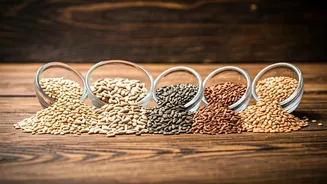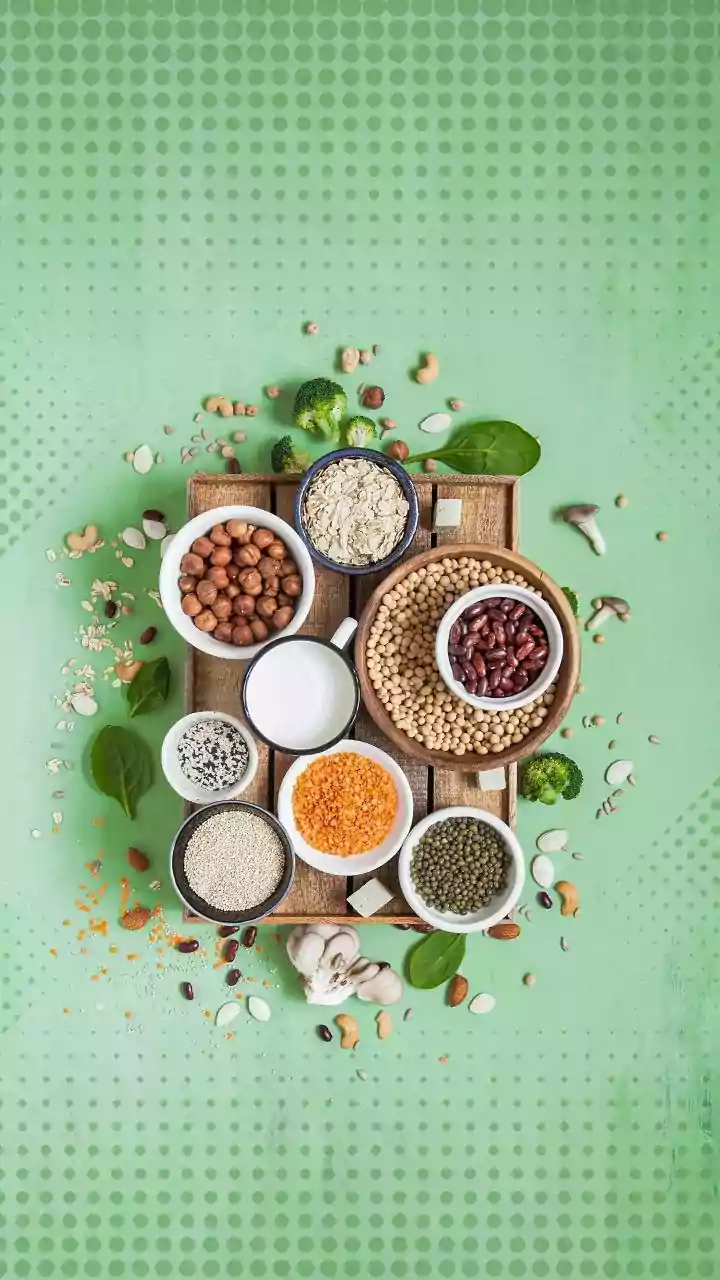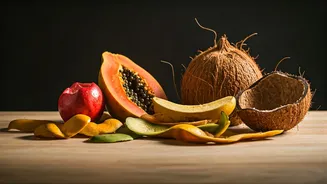Seeds for Health
Incorporating seeds into your diet is a simple yet impactful step towards better health. Many seeds are packed with nutrients that can have a positive
impact on heart health and cholesterol levels. This approach provides a natural pathway to well-being, which is often found by simply changing eating habits. The power of these tiny packages lies in their rich composition of healthy fats, fiber, and antioxidants. These substances work synergistically to address cholesterol concerns. They contribute significantly to reducing LDL (bad) cholesterol levels while promoting overall cardiovascular well-being. By focusing on incorporating these seeds into meals, you set the stage for long-term health benefits, enhancing the body's natural processes. This approach is not only effective but also aligns with a holistic view of well-being, emphasizing balance and harmony in your daily life.
Chia Seeds' Power
Chia seeds, famous for their high fiber content, are effective in cholesterol management. Fiber binds to cholesterol in the digestive system, preventing its absorption into the bloodstream. This process helps to lower LDL cholesterol levels. Additionally, chia seeds contain omega-3 fatty acids, which are known to improve heart health. Omega-3s reduce inflammation and support the overall function of the cardiovascular system. The addition of chia seeds to your diet can also contribute to improved blood sugar control and weight management, thanks to their filling properties and effect on slowing down the absorption of sugar. Adding chia seeds to breakfast cereals, smoothies, or yogurt can make them a versatile and easy addition to any diet. Consistent consumption can lead to noticeable improvements in cholesterol profiles and a reduced risk of heart-related issues.
Flaxseeds' Benefits
Flaxseeds stand out for their rich omega-3 fatty acid content, which is a plant-based source known to lower LDL cholesterol. They also include soluble fiber, which assists in binding with cholesterol. These aspects make flaxseeds highly beneficial for heart health. It is important to note that the body more easily absorbs nutrients from ground flaxseeds compared to whole flaxseeds. To maximize the health benefits, flaxseeds can be ground and added to various meals. The lignans in flaxseeds provide antioxidant protection and contribute to improved cardiovascular health. Regular consumption of flaxseeds has been associated with reduced cholesterol levels and a decreased risk of heart disease. From enhancing salads to mixing them into baked goods, there are numerous creative ways to make flaxseeds a standard part of your diet. This will help you maximize heart health benefits and overall well-being.
Hemp Seeds' Role
Hemp seeds offer a complete protein and a balanced ratio of omega-3 and omega-6 fatty acids, beneficial for reducing LDL cholesterol levels. These seeds are also a good source of fiber, which helps bind to cholesterol in the digestive tract. The specific combination of fatty acids in hemp seeds supports cardiovascular health by lowering inflammation and improving blood vessel function. Consuming hemp seeds can also help in managing blood pressure, contributing to overall heart health. These seeds have a mild, nutty flavor, making them a great addition to salads, smoothies, and snacks. Incorporating hemp seeds into the diet is a simple step towards improving cholesterol levels and improving overall well-being. The versatility of hemp seeds allows for easy integration into diverse meal plans, enabling continuous health benefits.
Sunflower Seeds' Impact
Sunflower seeds are packed with healthy fats, fiber, and various nutrients that can contribute to maintaining healthy cholesterol levels. These seeds are particularly rich in vitamin E, an antioxidant that protects the heart from damage caused by free radicals. The fiber present in sunflower seeds helps in binding with cholesterol, preventing its absorption and aiding in its removal from the body. Eating sunflower seeds is associated with improved cardiovascular health, including reduced LDL cholesterol. Their delicious taste makes sunflower seeds a great snack by themselves, or they can be added to salads and trail mixes. Regular consumption supports a reduction in heart disease risk and ensures a nutritious dietary plan. The addition of sunflower seeds to your diet is both tasty and beneficial, promoting an all-around healthier approach to life.
Pumpkin Seeds' Aid
Pumpkin seeds, also known as pepitas, are an excellent source of phytosterols, compounds that help lower LDL cholesterol levels. Phytosterols compete with cholesterol for absorption in the gut, which helps reduce its presence in the bloodstream. These seeds also contain healthy fats and fiber, that further contribute to their heart-healthy benefits. Furthermore, pumpkin seeds are a good source of magnesium, which supports proper heart function and is linked to lowered blood pressure. Eating pumpkin seeds has been proven to improve cholesterol levels and can support overall cardiovascular health. Whether roasted or eaten raw, pumpkin seeds provide a crunchy and satisfying addition to snacks and meals. Adding pumpkin seeds to your diet can be a tasty and effective way to promote heart health and overall well-being.





















